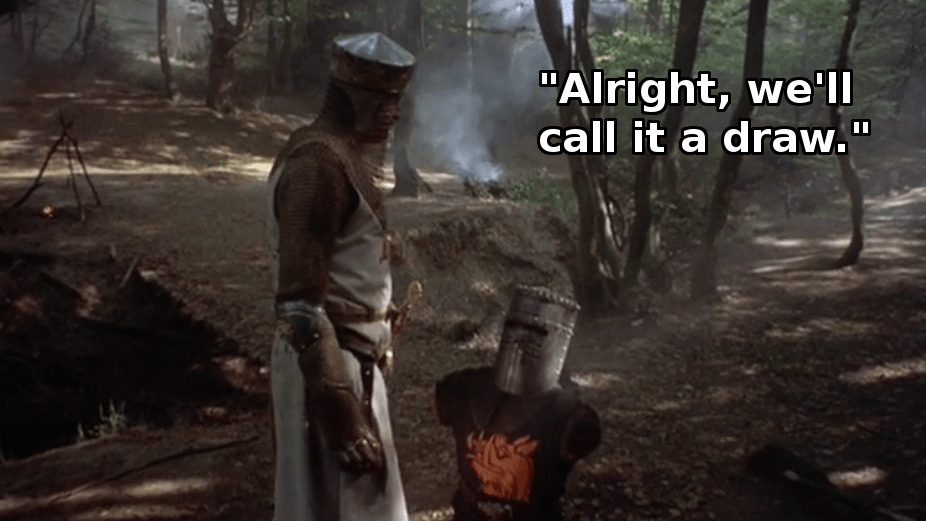
Why Is Stalemate A Draw In Chess?
How did it come to be that, in chess, stalemate is a draw?! In the most ancient known forms of chess, such as shatranj and chaturanga, stalemate was a win. Today in the (arguably) most played form of chess, Xiangqi, AKA Chinese Chess, stalemate is a win. Even in our far inferior sibling game of checkers, stalemate is a win.
The rules regarding stalemate were only standardized within the chess community in the 19th century. The excellent wikipedia page for stalemate provides a detailed and well-documented history of various rules regarding the outcome of stalemate that have persisted throughout history. It is only as late as the 15th century that stalemate was considered anything less than a win, and only in the last two hundred years the the drawn outcome has become the norm.
It is logical that depriving the opponent of any possible move constitutes complete and total victory. Present any stalemate to a beginner and ask them what the result should be. Lacking the brainwashed biases that we experienced players possess, they will rightly assure you that the game is decisive!

"But mommy, why is stalemate a win?!"
Logic aside, the real problem with stalemate being a draw is that it is bad game design. The most common complaint about chess is that the drawing margin is too high. The recent Candidates tournament had 71% draws. Giri jokes aside, this begs a very important question, “How can chess justify a rule that creates more draws?”.

Alright... maybe one Giri joke...
Changing the outcome of stalemate would have profound impacts at the highest level. Consider the following common positions in which a clearly outmatched king escapes defeat through resorting to stalemate.
King plus Pawn versus King
Rook versus Bishop
Two Knights versus King
Queen versus Pawn on the Seventh
There are many other important cases where the outcome would be altered as well. I don't even need to include the famed bishop and wrong colored rook pawn here. Now the rook pawn ALONE defeats the defending king.
Many are deeply opposed to the idea that stalemate should be a win. Here are some of the prevalent, but weak, arguments put forward in favor of the idea that stalemate is a draw.
- Argument: Chess has a great tradition. We should keep our rules the same as they have been for centuries.
- Rebuttal: For more centuries than not, stalemate was a win.
- Argument: Checkmate wins the game. Stalemate is not checkmate; therefore it cannot be a win. As a Mr. Hamburger once eloquently said, "Stalemate is the penalty for mauling without killing."
- Rebuttal: Who cares about definitions? The rules should be based on sound, simple game design.
- Argument: Stalemate swindles are a beautiful part of the games.
- Rebuttal: True, but now gorgeous stalemating problems resulting in victory will be created. Also, nothing beats fighting chess; reducing the drawing margin will increase decisive games.
- Argument: Such a rules change would force the reevaluation of all previous works on chess including books, tablebases, etc.
- Rebuttal: Are we simply too lazy to change the rules?
- Argument: We will miss out on moments of sheer comedic gold like the following!
- Rebuttal: You got me...

I'm hardly the first to present this argument, but every so often, one must make a case for changing the rules again, this time with gifs ![]()
I am sure the reader has their own deeply held opinion on the topic. Let the flame war commence!
If you liked this post, subscribe and follow on YouTube and Twitch for more chess content!

